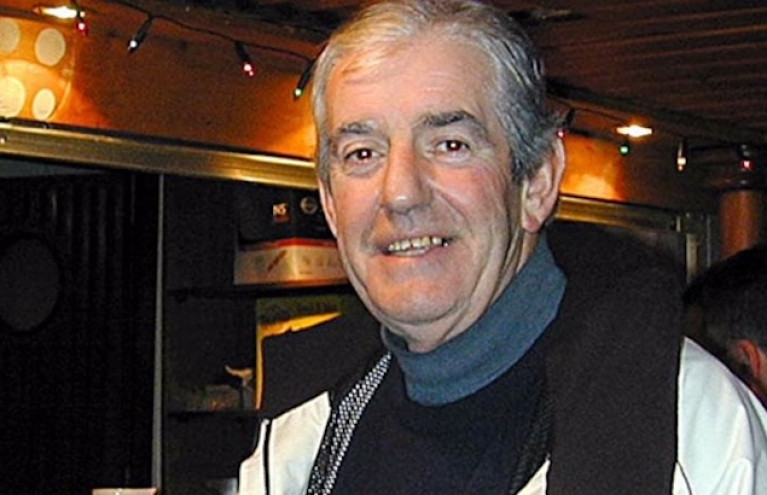Displaying items by tag: Tom Watson
Tom Watson 1944-2021
Tommy Watson was a popular senior member of the Down Cruising Club, known to many sailors in its hospitable home on the Lightship Petrel, which is permanently moored alongside – complete with pontoons – in the hidden anchorage of Ballydorn near Whiterock on Strangford Lough.
He joined the club shortly after the ship – which had been saved by DCC from the breaker's yard - arrived from Irish Lights in Dublin in 1968. Tom readily and willingly became involved in DCC's can-do co-operative approach, with which it successfully faced the challenges of fully developing its characterful facilities. Always ready to undertake voluntary work, he progressed through the ranks to serve as Commodore, and was subsequently elected as President.
 Down Cruising Club's ex-Lightship HQ has been in place at Ballydorn on Strangford Lough since 1968
Down Cruising Club's ex-Lightship HQ has been in place at Ballydorn on Strangford Lough since 1968
He was to own many boats, which he personally maintained to a high standard. His first was an unfinished Aquamarine 4/21 which he completed at home, and after a few years, he progressed to a Sabre 27. He then joined Russell Murphy, another senior DCC member, in co-owning the Nicholson 36 "Daiquiri", a 1963 classic. The club ran a series of cruiser-races, and despite no prior experience, Tommy and Russell became increasingly keen and were anxious to perform better.
Thus they asked the well-known local skipper Dick Gomes to join them as helmsman and tactician, and such was their success that the club imposed a 10% "jockey penalty" on their handicap, which irked them somewhat even if the rest of the club thought it was a compliment to their developing skills and "Gomesie's" special genius. Their links with him didn't stop there, as they often cruised "Daiquiri" on the West Coast of Scotland in company with Dick and Deirdre Gomes in their classic yawl "Ain Mara".
“In 25 years partnership with Russell, after 10 good years with Daiquiri they bought a Moody 39, and then an even more gentlemanly Moody Eclipse 39. He loved the excitement of looking at boats, and then getting involved with them, with his final two being an LM 32 Deck Saloon, and then a Rival 32. Being one of DCC's most senior members with more than fifty club years eventually under his belt, he was a "Dornocrat", with his moorings right in the Dorn itself, rather than in one of the outer anchorages which were to be brought into use as the club's fleet expanded.
During his long sailing career, he also joined other crews on the Mediterranean and Caribbean and, rather less glamorously, crossing the North Sea from Norway. Often known as "Watty" he was a great shipmate and always popular aboard, and dependable with it.
 For ten years, Tom Watson was co-owner of the classic Nich 36 Daiquiri
For ten years, Tom Watson was co-owner of the classic Nich 36 Daiquiri
Tommy was passionate about Down Cruising Club, taking an active part in every area of the club, and about Strangford Lough generally. He was a member of Ringhaddy Cruising Club, and of Portaferry Sailing Club, and an enthusiastic supporter of the local RNLI Lifeboat station. This encouraged him to buy a holiday apartment in Portaferry. It was while staying there that he collapsed and died when out walking with his wife Laraine on the Shore Road on 21st January 2021.
Many expressions of sympathy have already been sent to Laraine and their daughter Suzanne. His excellent and helpful company will be greatly missed by the Down Cruising Club members, particularly at the traditional Sunday evening gatherings in the idiosyncratic bar on the Lightship after the pandemic has been moved on, at those quietly special occasions when Tommy Watson's company was much appreciated in times past.






























































